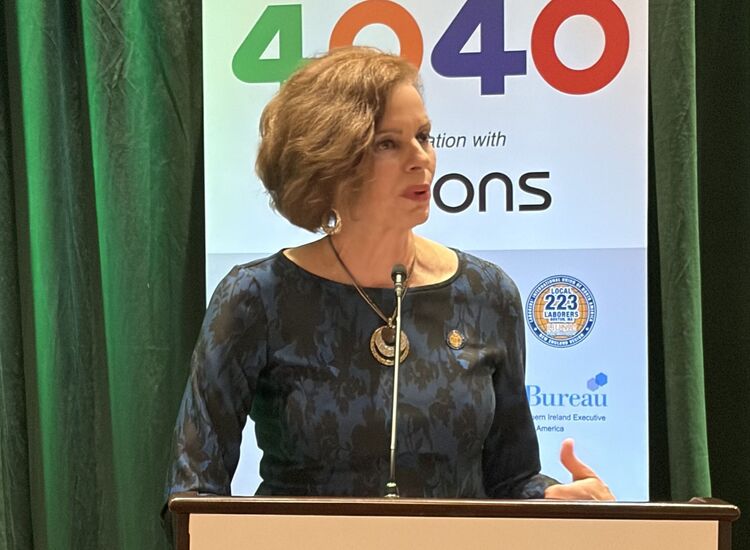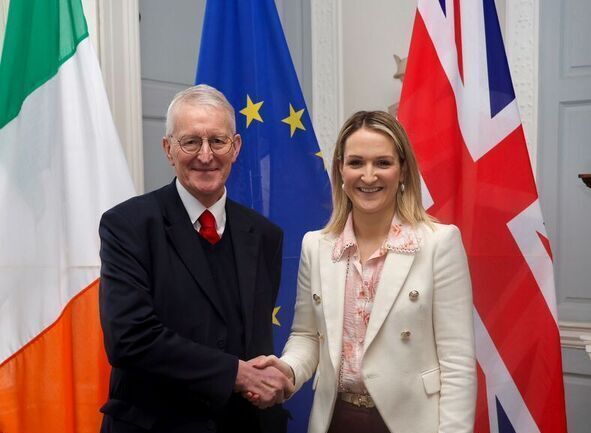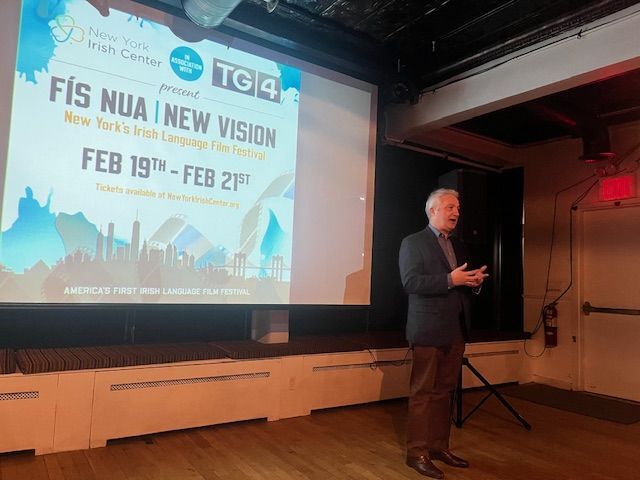By Susan Falvella Garraty
Washington, D.C. --- He was pelted with eggs in Dublin and had to cancel an appearance in the center of London this week because of threatened protests.
By contrast, Tony Blair's visit to Washington, D.C. ran smoothly and was highlighted by a visit to the White House. Coming up this week are visits to Philadelphia , where he will be accompanied by former president Bill Clinton and stopovers in both New York and Boston.
The former British prime minister is on tour promoting his autobiography, "Tony Blair "A Journey - My Political Life." In the book, Blair, who has Donegal roots on his mother's side, pays considerable attention to Ireland and the Irish.
The book itself seems a conciliatory effort, although without any bit of a mea culpa. "A Journey" reads almost like the reflections of someone after overcoming an addiction, not for alcohol or drug use, but rather an explanation of just why he was involved in sending British troops to Iraq.
It's evident in the book that Blair believes his most redeeming moments as prime minister came with his contribution to the Northern Ireland peace efforts. He sets out very early mentioning that his mother's heritage as a poor woman from Donegal propelled him towards the Labor Party rather than towards his father's preference for the Tories.
"For some reason - maybe to do with her Irish background - she felt somehow excluded," writes Blair.
His mother was the daughter of an Orangeman, but she gave him Irish bona fides that he hoped would allow him some credibility as he dealt with the arcane, pedestrian squabbles and entanglements during the course of the peace negotiations.
Blair admits that he bent the truth on occasion, but he knew with the Republic's prosperity and the assorted cast of political characters, that there would never be a better time to sort our the sectarian conflict that had bedeviled his predecessors.
He gives surprisingly short shrift to Mo Mowlam, who served as a Northern Ireland Secretary of State before her death of a brain tumor in 2005. Bill Clinton and George Mitchell seem much more in the background in Blair's telling of the see-saw negotiations leading the Good Friday Agreement. Ever the everyman, Blair concedes he might have tippled a bit too much, but never out of control.
If he ever was driven to drink by the peace process, David Trimble's constituents might have been the catalysts, along with Garvaghy Road organizer Breandan MacCionnaith, for their sheer "unreasonableness."
Of Sinn Féin leaders Gerry Adams and Martin McGuinness, Blair said he "liked them more than I should have." Blair also regales readers with quite a bit of admiration for a certain former taoiseach.
"Bertie is one of my favorite political leaders.... he became a true friend," Blair writes of Bertie Ahern.
On the Good Friday Accord, Blair writes: "...it was one of the few times in the job I can honestly say I felt content, fulfilled, and proud."
There are two versions of Tony Blair's book. The UK cover is a tight shot of Mr. Blair, the camera's angle showing that he's closing in on 60 years old. The U.S. version has him dressed all in black a la Johnny Cash, hands folded across his chest. It allows the reader to see that h has kept in shape. Blair knows how to tailor himself for different audiences.
Blair's book is being published by Alfred Knopf. Spokeswoman Molly Erman said that following the mayhem in Dublin and London there were no further cancellations for Mr. Blair's book tour.
A report on Blair's Dublin visit appears on Page 8 of the print edition.









